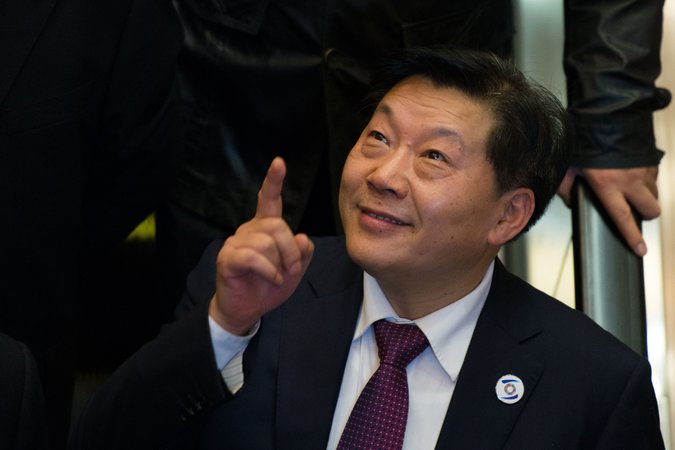Ahead of the annual U.S.-China Internet Industry Forum, which begins on December 2 in Washington, the New York Times’ Paul Mozur and Jane Perlez profile Lu Wei, describing his young career as China’s “cyberspace minister” and how he represents a new generation of CCP propaganda official:
[…I]n his rise to become China’s Internet custodian, he has demonstrated a canny awareness of the power of the Internet and social media, while also proving adept at the far older art of manipulating public opinion to benefit the party.
Since taking over the State Internet Information Office in 2013 and becoming the director of a powerful Internet committee headed by President Xi Jinping last May, he has ratcheted up restrictions in what is already the world’s most sophisticated system of online censorship.
He has curbed the country’s freewheeling social media pioneers by issuing stern warnings in private meetings and severely restricting the accounts of some in a campaign that led to the detention of one online celebrity. On his watch, the government increased blocks on foreign websites and issued new regulations to restrict sharing on social media and increase censorship of popular online video sites.
[…] “Lu Wei was the right man, at the right position, at the right moment,” said Rogier Creemers, a research scholar at Oxford. “The traditional guard that ran the propaganda department were slightly too hidebound. The idea was they needed clever people who knew what they were talking about. Suddenly someone makes a public stand that shows he understands the Internet and social media as well as its international expansion.” […] [Source]
Lu Wei, who will be in attendance at the U.S.-China Internet Industry Forum, earlier stated that China has every right to choose which foreign tech firms are allowed into the Chinese market. Also see China Media Project’s David Bandurski’s analysis of Lu’s rhetoric and career (via CDT), and all other CDT coverage of Lu Wei and “Internet management” in China.








